Bomblies Group News
Winter Event 2024 / 2025

For this year's team event, we let free our inner Viking and tested our warrior skills at Axtra. Afterwards, we went to the restaurant Tamarind Hill for dinner.
Chromatin accessibility and gene expression vary between a new and evolved autopolyploid of Arabidopsis arenosa
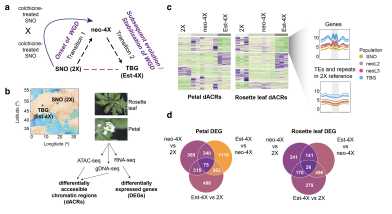
Thanvi, Adrian and Kirsten from our group just published a Molecular Biology and Evolution paper, describing how epigenomic and transcriptomic changes occur during polyploidy evolution in plants.
Group retreat 2024
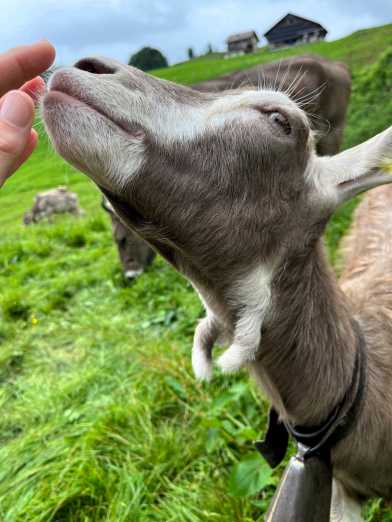
From 20.08.-22.08.2024, the Bomblies group went on their fourth retreat to the Husky-Lodge in Muotathal. This year, the agenda was slightly free-form and we had lots of interesting discussions.
Congratulations Vera!

Vera Sham successfully defended her PhD thesis today! This degree is a big steppingstone towards a bright future. Her enthusiasm and sunny disposition are truly inspirational.
Anis features in the ETH "life" magazine

Anis Meschichi is (among other things) involved in the ETH Outreach Programme. In this context, an article appeared in the April 2024 issue of the ETH "life" magazine. On pages 12-14 you can read the inspiring article "Drag is freedom".
Congratulations Amrita!
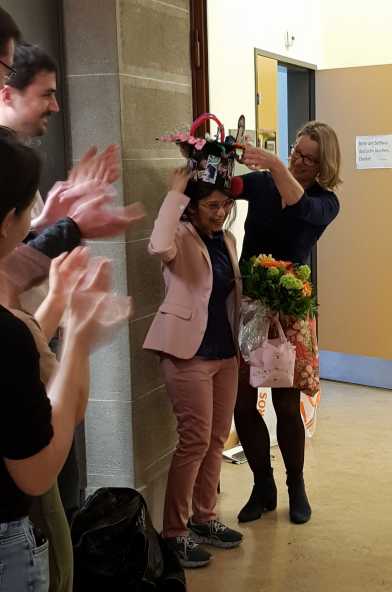
Amrita Möhl-Raj successfully defended her PhD thesis today! Congratulations Amrita, we are excited to celebrate this milestone with you.
Our paper made it into the ETH News
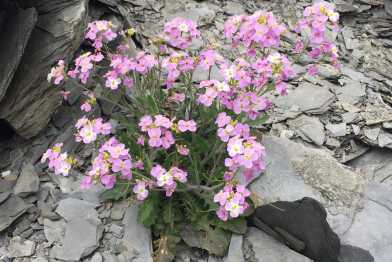
Twisted pollen tubes induce infertility Plants with multiple sets of chromosomes have advantages over their relatives with a double set. But why they often start out infertile was only partially understood. Biologists at ETH Zurich have now discovered a new reason for the initial difficulties.
Defective pollen tube tip-growth induces neo-polyploid infertility
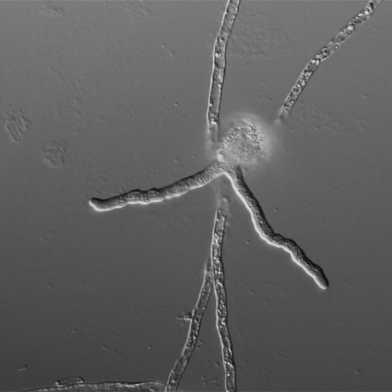
A recent paper published in Science by the Bomblies group (IMPB), shows that newly formed polyploids suffer a severe defect in polar cell growth, which is essential for fertility in plants as it allows sperm to reach ovules, and provides insight into a naturally evolved solution to this challenge.
Winter Event 2023 / 2024
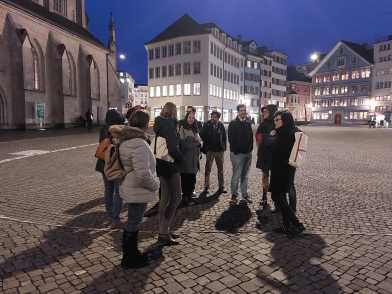
On the Evening of February 9 2024, the Bomblies Group went on a guided tour of the Zurich Old Town.
Congratulations! Adrian won an ETH Career Seed Award

Dr Adrian Gonzalo Sanchez received funding for his project «High-throughput quantification of aneuploidy in plants». Career Seed Awards are intended to promote the establishment of a record of independent research at the postdoctoral level to facilitate the challenging transition to a successful future academic or industrial career.
Poster session / block course students
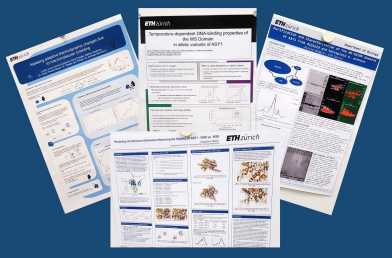
The students of this year's block course presented their posters on Wednesday, November 29 2023. This was the final output from all the hard work they did during the training. Our team gave them critical feedback and acknowledged their great efforts.
New royalty in our midst

The rainbow lights sparkled bright on September 23 2023 during the Heaven Drag Race in Zurich’s Neumarkt Theater, in the course of which seven extravagant drag queen talents competed to win the crown of Miss Heaven 2023.
Group retreat 2023
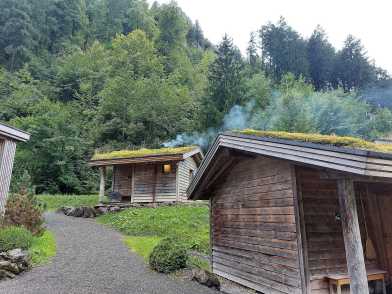
From 29.08.-01.09.2023, the Bomblies group went on their third retreat to the Husky-Lodge in Muotathal. This year, we focused on grant writing and block course designs. There were also some amazing presentations from the team and a guest speaker.
Congratulations! Vera won a Poster Award!
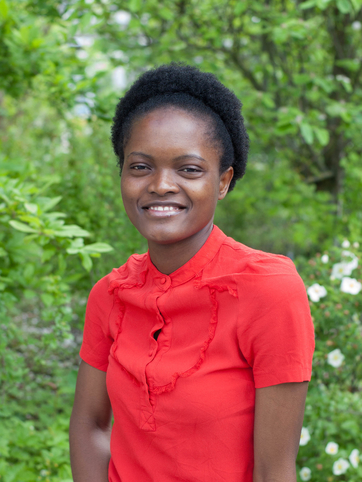
Vera has been invited to attend the 2023 Meeting of Photosynthesis, a highly prestigious confernce, which was held in Newry (USA).
Engineered meiosis to stabilize new polyploids in PNAS
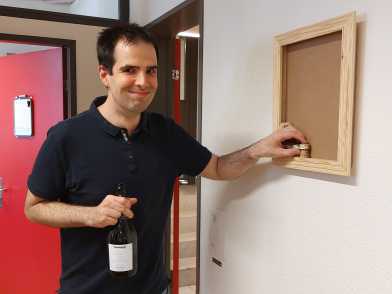
Polyploidy can be advantageous in the long run (many crops are polyploid), but it often involves immediate negative consequences, such as unfaithful chromosome segregation during meiosis. Is there any way we can alleviate these undesired effects in newly generated polyploids?
Congratulations! ETH awarded Anis a PostDoc Fellowship Grant

This year, Dr Anis Meschichi is awarded the ETH post-doctoral fellowship grant for the project PolyChromPaint (Polyploidy Chromatin and OligoPAINT).
Congratulations! SNSF awarded Thanvi a PostDoc Fellowship Grant

Dr Thanvi Srikant has been awarded a 2-year postdoctoral fellowship from the Swiss National Science Foundation for studying how chromatin architecture can affect genome stability during polyploid evolution. She was among the 90 successful candidates from 531 applications.
Winter Event 2022 / 2023
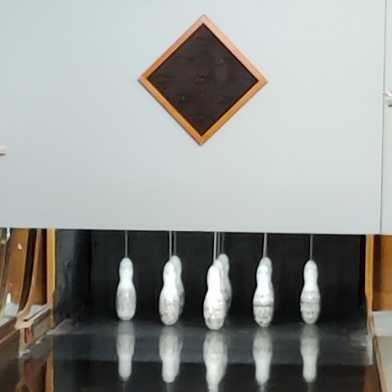
On January 27 2023, the Bomblies Group went to the Restaurant Ziegelhütte in Zurich Schwammendingen for bowling and an excellent dinner.
Talk of Adrian Gonzalo Sanchez during the PAG conference in San Diego
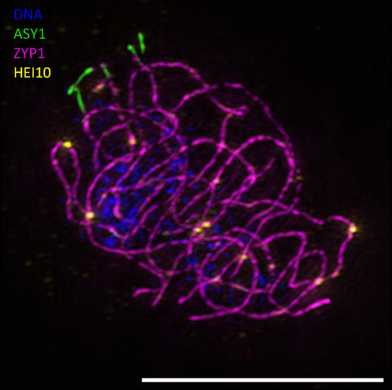
From January 13 to 18 2023, the International Plant & Animal Genome Conference took place in the San Diego Convention Center in California.
Prof. Kirsten Bomblies received a "Golden Owl" award
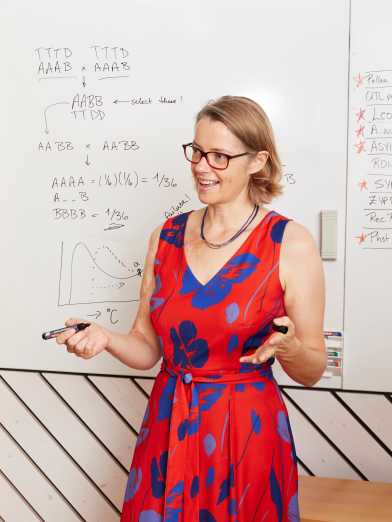
Every year at ETH, the Golden Owl flutters in to recognise one professor or lecturer per department for excellence in, and dedication to, teaching. The awardees are selected by the students of ETH in each department via the student organisation VSETH. The award is then announced at the annual ETH day by the student who is president of VSETH (currently Emir İşman).
Halloween and goodbye (& hello again) to Charlotte

Halloween and Charlotte's "farewell" party fell both on October 31st 2022. Occasion enough for a small get-together with cakes, costumes and (haute) couture...
Prof. Kirsten Bomblies is a new member of the SNSF Research Council

As of 1 October 2022, Prof. Kirsten Bomblies joined the Biology and Medicine division of the Research Council. The National Research Council evaluates project proposals submitted by researchers in Switzerland and selects the best ones for funding. It is composed of a maximum of 100 leading scientists, who work on an honorary basis. Members are elected by the Executive Committee of the SNSF Foundation Council.
Group retreat 2022

From 23.-26. August 2022, the Bomblies team went on their second retreat to the Husky-Lodge Muotathal. This year, we focused on good communication skills incl. several scientific writing- and story framing workshops.
The genetic (and biophysical) basis of adaptation, and what we can learn from it
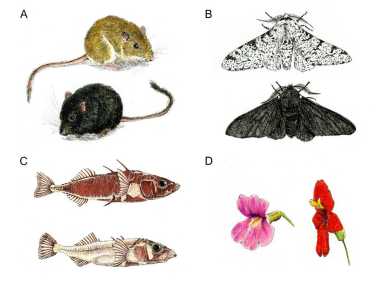
Mendel was born 200 years ago this July! To celebrate, PNAS published a special issue on the influence of his findings on evolution. Kirsten Bomblies (D-BIOL, IMPB) and Katie Peichel (Uni Bern), contributed a perspective on the Genetics of Adaptation, integrating empirical and theoretical studies.
A winding road of adaptive evolution to polyploid chromosome segregation
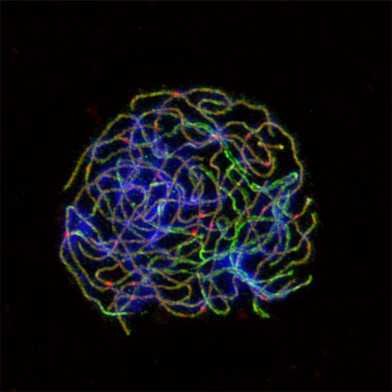
How can organisms evolve to segregate additional chromosome copies when they have been optimized over eons to segregate pairs of homologs in meiosis? A study from the Bomblies lab (IMPB, DBIOL) investigates the molecular basis of multigenic adaptation to polyploidy in Arabidopsis arenosa.
Plant sex - nocturnal exhibition at the Succulent Collection in Zurich
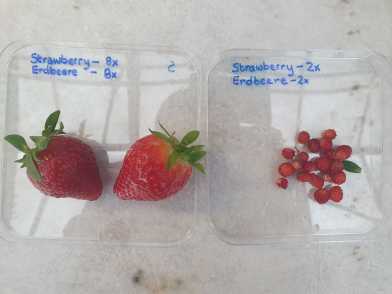
As part of the Scientainment programme "Nachtaktiv" for young people between 16 and 25 years of age, the event "Plant Sex" took place at the Succulent Collection in Zurich. The topic was the reproduction of plants – presented in an entertaining and at the same time scientifically sound way. Plants cannot actively search for partners themselves. This has given rise to the most bizarre forms of mating. From cuddly sex to rubbing insects on flowers, it's all there.
Surprising Vera
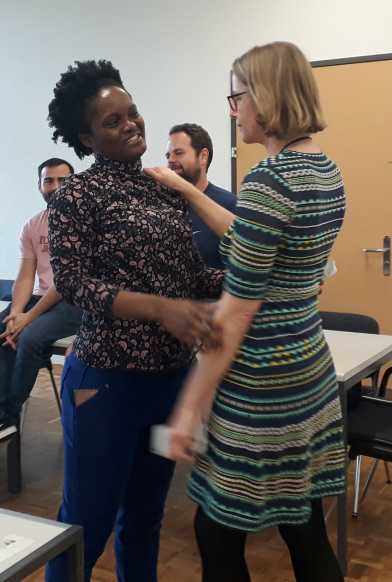
Living half a world apart and separated for almost two years because of COVID-restrictions, Vera and her fiancé traveled last week from Switzerland and Australia to their home country to finally get married. Since we can't be in Cameroon for the festivities, we planned a little surprise party for Vera. We wish Vera and Fabrice the happy fairy-tale ending their story deserves!
Annual Arabidopsis search around the LFW building
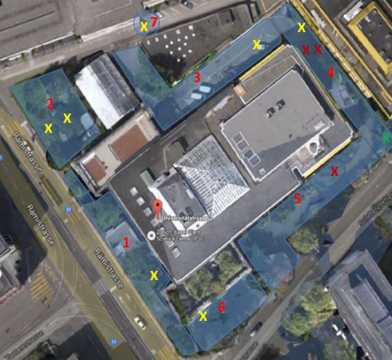
Every year a group from the Institute of Molecular Plant Biology checks the areas 1-7 around the LFW building (see thumbnail or photo in galary) for Arabidopsis plants. This year, the task fell to the Bomblies Group.
A quiet evolutionary response to cellular challenges
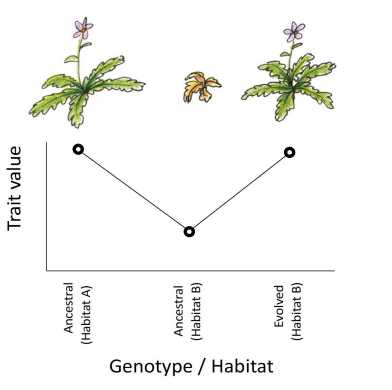
In studying evolution, we often focus on showy traits. But a recent essay by Kirsten Bomblies (IMPB, DBIOL) highlights that “invisible” adjustments that maintain cellular functions in novel contexts are an important force in evolution and can help interpret signatures of selection in genome scans.
Winter Event 2021/2022
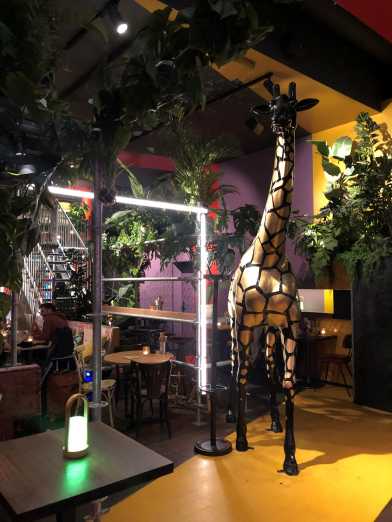
On February 10 2022, the Bomblies Group spent a fun evening in "Züri West". We started by playing virtual reality games at VR City. Afterwards we went to the restaurant Kitchen Republic for dinner.
Male and female recombination in diploid Arabidopsis arenosa
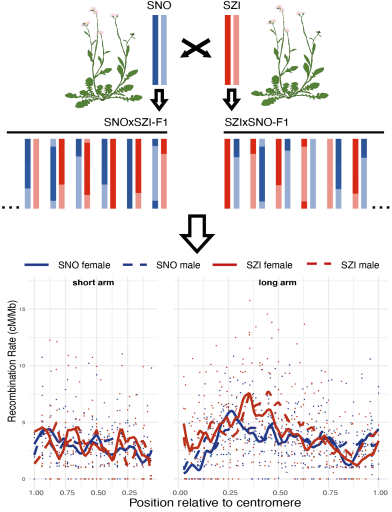
A recent paper published in the journal Genetics from the Bomblies lab characterizes the meiotic recombination landscape in male and female meiosis of two diploid Arabidopsis arenosa populations. The study is the first genetic map for this species and thus an important resource, but it also reveals several interesting features.
Lab cleaning day
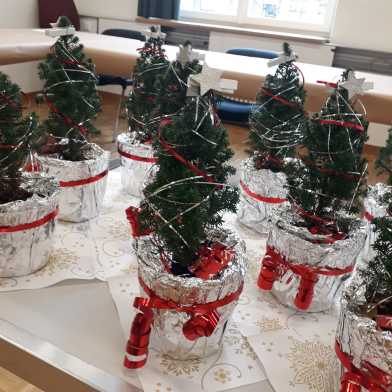
Just a few pictures from our lab cleaning day. It is amazing what a difference a few hours and lots of helping hands can make... And because it is the beginning of the festive season, everybody got their own real Christmas tree today (chamaecyparis thyoides).
Two Is Company, but Four Is a Party — Challenges of Tetraploidization for Cell Wall Dynamics and Efficient Tip-Growth in Pollen
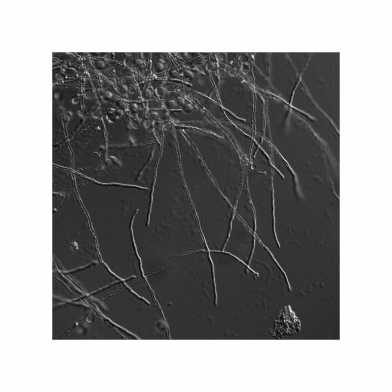
Plant reproduction requires pollen grains to generate long tubes to fertilise the egg cells. Steady pollen tube growth and controlled rupture are crucial events that require tight coordination of tip growth and cell wall stability at the cellular level.
A tango with four: Evolutionary modification of crossover interference enables stable autopolyploidy
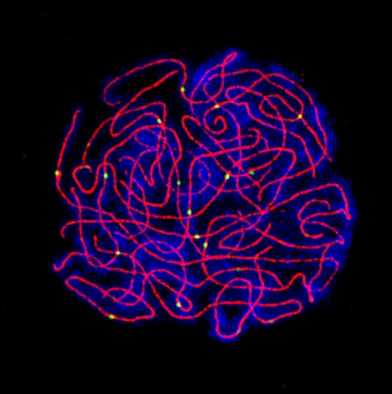
How do you do meiosis with four copies of every chromosome instead of two? A recent "Current Biology" paper by the Bomblies group (IMPB) with collaborators Nancy Kleckner (Harvard) and others, presents a new model suggesting increased crossover interference is key in stabilizing polyploid meiosis.
Welcome back Suzanne - and thank you for the cake!

This week Suzanne returned from her maternity leave. We are so happy to have her finally back in the lab! But her surprise present made us even happier. :-) She brought a terrific tailer-made cake for our lab: The cake was not only vegan, lactose- and gluten free, it was also adorned with beautiful hand-painted arenosa flowers and tasted absolutely fantastic.
Group retreat 2021

From 16.-18. August 2021, the Bomblies team went on their first retreat. The last time we met in person was over 18 month ago (before ETH decided on the home office recommendation due to COVID19). We thought it was hight time to catch-up in person again.
A coarsening model for meiotic crossover interference
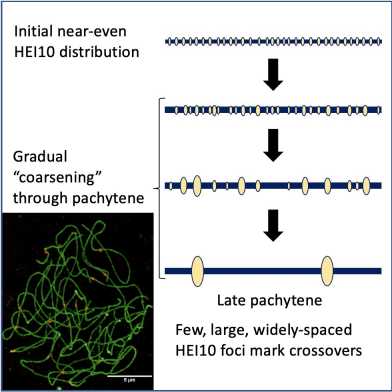
A study published in Nature Communications, from a collaboration between the Bomblies lab (IMPB) and colleagues at the John Innes Centre and Cambridge University in the UK, presents a new model for how meiotic crossover interference, which is important in chromosome segregation, could work.
Three grown men and a baby bird
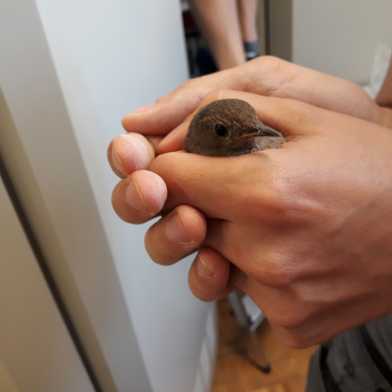
Only six weeks after the capture of "Houdini", the amazing garden dormouse, we startet today on yet another animal rescue mission. A young bird slipped through a water drain into a narrow space between the window and the balcony right outside the LFW E55 laboratory.
Recombination and chromosome pairing vary with seasonal temperature in nature
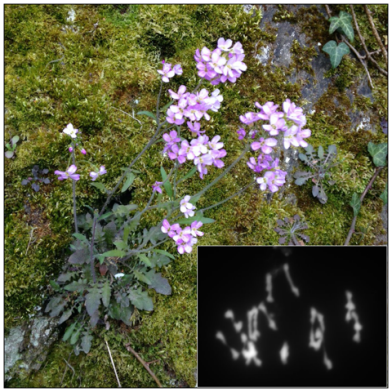
A recent "Molecular Ecology" paper by the Bomblies group (IMPB) shows that meiotic recombination rate, as well as abnormal chromosome associations that can lead to aneuploidy, co-vary with temperature across a growing season in wild populations of a tetraploid plant, Arabidopsis arenosa.
"Houdini" the amazing garden dormouse escape artiste
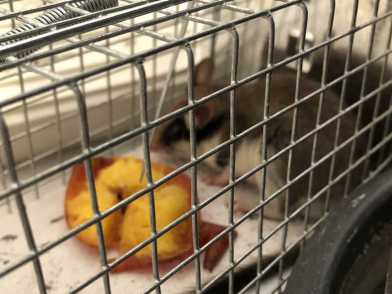
Today we had an unexpected and nimble visitor in the office. After he escaped us for hours, we were finally able to convince him to go back home (with the help of an animal welfare escort). ETH sadly rejected all requests for adoption…
When everything changes at once: finding a new normal after genome duplication
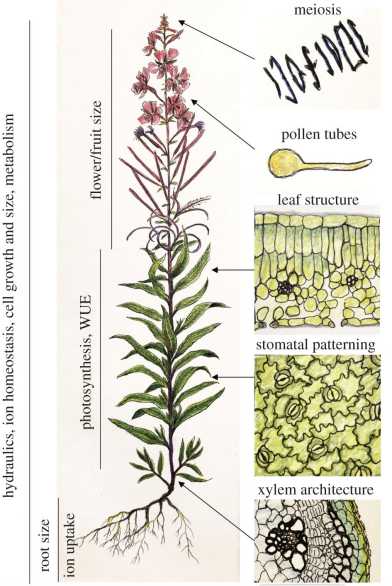
Genome duplication results in substantial changes to the cell biology and physiology of plants. One of the most common changes in neopolyploids is an increase in cell size. This has important implications for growth, fitness and stress resilience in neopolyploids. But is an increase in cell size a challenge or an opportunity? This literature review suggests that probably both are true, and discusses how polyploids can evolve a “new normal” through extensive physiological retuning.
Naturally evolved alleles of two proteins affect meiotic traits in a polyploid
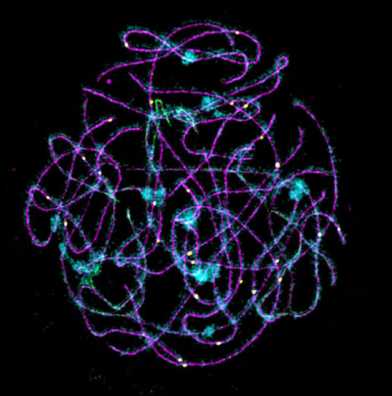
Polyploids arise from genome duplication. They are important in agriculture and natural evolution, yet face challenges when they first form. A recent paper in PNAS from the Bomblies group sheds new light on naturally evolved genetic changes that likely helped a natural polyploid persist.
Inaugural lecture of Prof Kirsten Bomblies
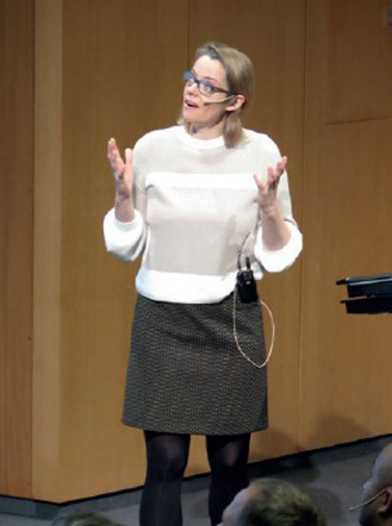
On Monday, February 17 2020, Prof Kirsten Bomblies gave her inaugural lecture entitled “How chromosomes learn to partner up and dance in stressful situations”.